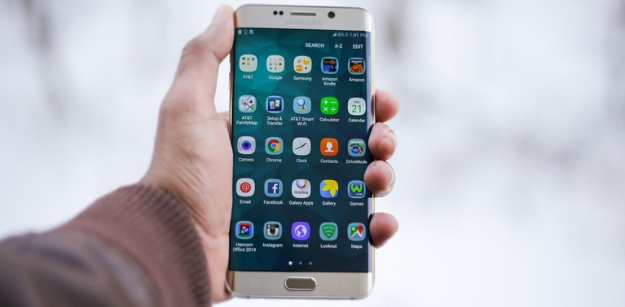There’s been a lot of talk in the press and elsewhere recently about the way that apps are changing the face of culture and society in the US and beyond. Everything from how people speak to their loved ones to how they spend their leisure time has changed, and the causes are as diverse as changes in legislation to changing social trends. Take the example of gambling: with recent changes to the law taking place, states including New Jersey have since gone ahead and legalized it, and online betting NJ has ended up being highly popular.

But is it just changes to the law like these that can affect the popularity and uptake of apps? The short answer is no: while the law in this regard certainly is important, it’s not the only reason. This article will explore three different types of app, and look at three distinctive reasons why some apps rise to the top of the tree with ease.
Consumer choice
As the example above shows, changes to the law such as the Professional and Amateur Sports Protection Act can have profound consequences on the way that people spend their leisure time. However, there are more deep-seated reasons why people are now spending their leisure time on apps rather than heading out to physical leisure locations. An app such as Netflix, for example, poses so many more advantages than heading to the cinema: there’s a much larger range of choice of films, for example, and it’s not restricted to modern releases.
It’s clear what’s happening here: consumers love the range of choice that they have from apps like these. The subscription-based business model of apps such as Netflix is win-win: for the consumer, they are as cheap as a ticket to one movie yet deliver so much more value, while for the business, they create regular inflows of revenue. With a mutual benefit like this in place, it’s unlikely that this model will be going anywhere fast – and it is likely to simply get more and more substantial.
Regulatory changes
Sometimes, however, the reason is much simpler. As outlined above, some apps become popular because the content or service that they offer is suddenly legalized, subsidized or otherwise promoted. On a broader level, this can also happen in reverse. Apps can go out of fashion due to changes in regulation – and even the most popular apps in the world can be threatened in this regard. Take the example of game apps that include so-called ‘loot boxes’: moves are afoot in a range of countries to crack down on these paid-for gaming extras, and such a regulatory change could leave that industry suffering. In countries with government censorship policies, meanwhile, apps such as YouTube that disseminate information can easily be blocked centrally.
Cultural trends
There’s yet another trend that can be observed in the development of apps. In some cases, apps become popular because the underlying structure of a society or culture has changed – and this is in many ways the most profound possible development. Facebook is a prime example of this, both in terms of information sharing and personal communication.
Facebook’s primary function is content creation, and most content created is associated with a personal brand. Uploading a photograph, a status or a video to a personal Facebook profile is an act of self-expression, and that’s relatively recent in human history. It mimics cultural developments in the latter half of the 20thcentury, such as people’s appearances on programs such as Oprah. Cultural trends towards increased personal communication are also reflected in the Facebook products that enable conversation, such as Messenger and WhatsApp: by bringing messages from loved ones right to the top of your action list, Facebook is meeting a cultural demand to be in touch all the time.
One thing’s for certain: it’s now the case that apps are much more popular than they were even two or three years ago. However, explaining the rise in their popularity is never simple. Sometimes, apps become more popular because the legal or regulatory landscape changes – and that’s certainly happening with sports betting apps in the US. Other times, as is the case with Netflix, there is a consumer choice reason why certain apps win out. With apps such as Facebook, there are deep-seated and powerful cultural reasons why people are more interested than ever in the lives of others.



